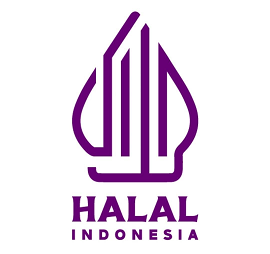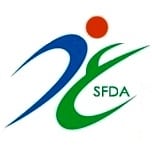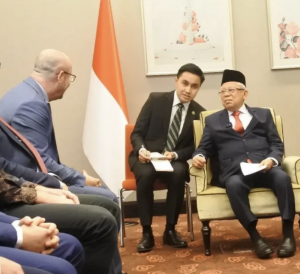Baker McKenzie
Substantive changes on halal certification, employment, and water resources
In brief
 The Government of Indonesia issued Government Regulation in lieu of Law No. 2 of 2022 on Job Creation on 30 December 2022 (“Job Creation GRL“). This opens the second act of the Omnibus Law following the scrutiny by the Constitutional Court of the formalities in the creation of the original Job Creation Law which was issued in 2020. Content-wise, the 1,117-page Job Creation GRL is a non-identical twin sibling of the original Job Creation Law with substantive changes on halal certification, employment, taxation, and regional government as well as some non-substantive changes in other sectors such as water resources. In this article, we cover the substantive changes on halal certification and employment, and changes in water resources.
The Government of Indonesia issued Government Regulation in lieu of Law No. 2 of 2022 on Job Creation on 30 December 2022 (“Job Creation GRL“). This opens the second act of the Omnibus Law following the scrutiny by the Constitutional Court of the formalities in the creation of the original Job Creation Law which was issued in 2020. Content-wise, the 1,117-page Job Creation GRL is a non-identical twin sibling of the original Job Creation Law with substantive changes on halal certification, employment, taxation, and regional government as well as some non-substantive changes in other sectors such as water resources. In this article, we cover the substantive changes on halal certification and employment, and changes in water resources.
Contents
Halal certification
The Indonesian Ulema Council (“Majelis Ulama Indonesia” or MUI) and its local offices will not be the sole institution having authority to determine the process for the issuance of halal certification. A new institution called the Halal Products Certification Committee (“Komite Fatwa Produk Halal” or KFPH), which is aimed to be established within one year after the issuance of the Job Creation GRL will also have the same authority to determine the halal status of products, as an alternative to MUI.
KFPH specifically has the authority to determine (i) the halal status of products of micro and small businesses based on halal fatwa provisions; and (ii) the halal status of products of non-micro and small businesses based on halal fatwa provisions in the event that the MUI or regional MUIs do not determine the halal status of a product within the determined timeline (i.e., three working days after they receive the examination result from the Halal Examiner Body (“Lembaga Pemeriksa Halal” or LPH)). KFPH consists of ulema and academics and is directly responsible to the Ministry of Religious Affairs. This KFPH needs to be established at the latest one year after the enactment of this regulation. The government will carry out the duties of the committee until the KFPH is established.
Other provisions of the Job Creation GRL offer a more streamlined approach to make the process of obtaining halal certification more efficient, including:
- If MUI or its local offices cannot issue the certification within three business days after the receipt of the halal product review and testing report which had been issued by a Halal Auditor for a maximum of fifteen business days, the certification will be issued by KFPH within two business days.
- Small and micro enterprises as well as cooperatives (“koperasi”) (SME/C) can obtain halal status stipulation from KFPH, free of charge, within one business day after the completion of the halal product assisted review, which runs for a maximum of 10 business days. Previously, there was no time limit provided, now there is more clarity on the length of the process. The administrative process is very simple compared to the process of obtaining halal certificates for non-SME/C. SME/C business actors may simply submit a statement declaring the contents of the halal products based on halal standards determined by the Halal Product Assurance Agency (“Badan Penyelenggara Jaminan Produk Halal” or BPJPH) and KFPH will only rely on the statement of the business actor in order to issue the halal certificate. This is provided that the product is not a high-risk product and is made of materials that have been confirmed to be halal, and the production process has been ascertained to be halal and simple.
- The halal certification only needs to be obtained once and remains valid as long as there is no alteration to the components and/or manufacturing process of the relevant product. Previously, a halal certificate issued by BPJPH was only valid for four years, and business actors needed to renew it (i.e., by filing an application to BPJPH at the latest three months before the expiry of the certificate).
- An online or integrated electronic-based services system to monitor halal products is to be established within one year. This integrated electronic-based services will connect all the relevant authorities in charge of the halal certification processes (e.g., central MUI, regional MUIs, LPH, KFPH, BPJPH and halal product assurance assistants). This indicates the commitment of the government to integrate licensing processes into a unified (and hopefully simpler) electronic-based system.
Employment
The main substantive changes on employment brought in by the Job Creation GRL include the following matters:
- Outsourcing
Companies can outsource part of the implementation of work to another company by entering into a written outsourcing agreement (“perjanjian alih daya”). The government will determine parts of the implementation of work that can be outsourced to another company in a government regulation. Previously, the Job Creation Law did not provide any limitation on activities that can be outsourced. While Government Regulation No. 35 of 2021 on Definite Period Employment Agreements, Outsourcing, Working and Resting Hours and Termination of Employment (“Regulation 35“), which is the implementing government regulation of the Job Creation Law on employment matters, includes provisions relating to outsourcing, it did not specifically limit activities of a company that can be outsourced to another company. Consequently, it was possible to argue that all activities in a company could be outsourced as long as certain requirements were fulfilled (e.g., the service provider is a legal entity, the employment agreements of employees of the service provider were made in writing, and definite period employment agreements included certain provisions confirming the protection of the employee’s rights in the event of a change of service provider while the work continues).
The Job Creation GRL, on the other hand, appears to limit activities of a company that can be outsourced, as it refers to “part of the implementation of work”. However, activities that encompass “part of the implementation of work” in a company (or those that are not part of it) are still not clear, as the government will need to issue a government regulation on this.
In relation to the government regulation to implement this aspect of the Job Creation GRL, it is possible that it would be a government regulation that amends Regulation 35. However, whether or not this is indeed the case and how the new government regulation will regulate outsourcing (particularly requirements relating to part of the implementation of work in a company that can be outsourced to another company) remains to be seen. In the meantime, until a new government regulation is issued, outsourcing requirements as set out in Regulation 35 should remain applicable.
- Minimum Wage
Although the Job Creation GRL brought certain changes to various provisions on minimum wage, these changes should not have any significant impact on employers. Generally, the governor of each province is still required to determine the provincial minimum wage, and employers are required to comply with the minimum wage requirements.
Notable changes relating to minimum wage include, among others, (i) governors can only determine a city/regency minimum wage if the result of the minimum wage calculation for that particular city/regency is higher than the provincial minimum wage, (ii) a new formula for calculating the minimum wage was introduced (which would be more relevant for the governors in Indonesia as they will determine the minimum wage), and (iii) the government now has authority to determine a different formula to calculate the minimum wage in certain circumstances.
Water resources: river diversion
To enable the construction of water reservoirs, dams and ponds, etc. by any interested party (including private companies), river diversion may be carried out with the government’s approval. Diverting a river without the proper approval will be a criminal offense punishable by up to three years of imprisonment and a fine up to IDR 5 billion if done intentionally or up to six years of imprisonment and a fine of up to IDR 1 billion if it is a result of negligence. The requirement to obtain approval for a river diversion is not entirely new, as this was previously regulated in regulations issued in 1991 and 2011. The Water Resources Law also imposes sanctions for failure to obtain approval, which are the same as those set out in the Job Creation GRL for criminal offenses in doing ‘construction in a water source’.
The Job Creation GRL provides that anyone who did river diversion without approval before the issuance of the Job Creation GRL will be subject to an administrative fine. This is despite the fact that the Job Creation GRL seems to allow a three-year period for those parties to obtain the required approval. If they still fail to obtain the approval within that period, they will be subject to criminal sanctions as mentioned above.
Content is provided for educational and informational purposes only and is not intended and should not be construed as legal advice. This may qualify as “Attorney Advertising” requiring notice in some jurisdictions. Prior results do not guarantee similar outcomes. For more information, please visit: www.bakermckenzie.com/en/client-resource-disclaimer.



